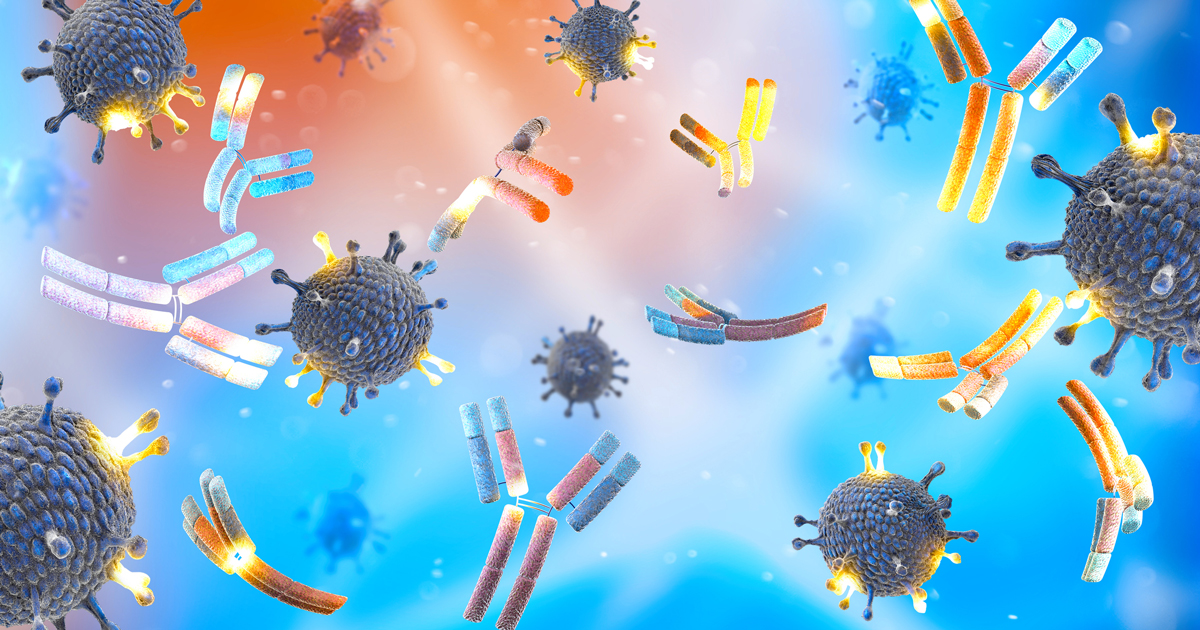Monoclonal antibodies: what they are and how to get them

People who are at risk of developing severe COVID-19 can receive monoclonal antibodies to potentially prevent their infection from progressing.
When you become infected with COVID-19, your body makes antibodies to fight off the virus.
If you have received a COVID-19 vaccine, your body has a blueprint for how to create its own antibodies to fight the virus more efficiently.
Monoclonal antibodies are man-made antibodies. These man-made antibodies can act as the “front line” fighters. They can begin tackling the virus right away, giving your body extra time to make its own antibodies.
Monoclonal antibodies may help improve your COVID-19 symptoms sooner. This makes a hospital visit less likely. And if given to a person with a compromised immune system before they’re exposed to the virus, they may even prevent infection.
All monoclonal antibody therapies are currently under emergency use authorization (EUA) through the U.S. Food and Drug Administration (FDA). They are all in clinical trials and are not yet fully FDA-approved.
More than 3,500 Nebraska Medicine patients have been screened to receive monoclonal antibodies since November 2020. More than 1,500 doses have been given.
How monoclonal antibodies are given, and who qualifies
All of the monoclonal antibodies we give are injections, mostly intravenous (IV) infusions. This means the drug goes directly into your blood through a small needle inserted into a vein in your arm.
To receive a monoclonal antibody infusion, you must have tested positive for COVID-19 and meet at least one of the following requirements:
- Age 65 or older
- A body mass index (BMI) of 35 or greater
- Have a compromised immune system, or some other high-risk condition that could cause you to become very sick from COVID-19
If you test positive for COVID-19 through a Nebraska Medicine clinic, your medical record is automatically screened to determine if you meet the requirements. If you qualify, a pharmacist will call you and schedule a time for you to receive an infusion.
If you tested positive for COVID-19 outside of our health system, your doctor can refer you to receive monoclonal antibodies.
The infusion takes about an hour. Once the infusion is complete, you will be monitored for another hour.
Nebraska Medicine patients with a compromised immune system, or who are severely allergic to the COVID-19 vaccines, may be able to receive monoclonal antibodies as a preventive treatment. We are working with our doctors to identify patients who need this preventive treatment most. If you are eligible, you will be contacted by a Nebraska Medicine case manager. If you are selected to receive the preventive monoclonal antibodies, it is two separate shots given at the same time – one in each butt cheek.
Monoclonal antibodies are not available at our emergency departments or clinics. And supplies are limited, meaning it is not possible for everyone who becomes sick with COVID-19 to receive this treatment.
Will monoclonal antibodies work against omicron?
We are currently offering three types of monoclonal antibodies at our Clarkson Tower infusion center:
- Bamlanivimab with estesevimab
- Casirivimab with imdevimab
- Sotrovimab
We have the most of bamlanivimab with estesevimab, and casirivimab with imdevimab, but unfortunately, they are not effective against the omicron COVID-19 variant. Sotrovimab does work against omicron, but at this time, there is very little available in the U.S.
If you are not vaccinated and boosted against COVID-19, please do so as soon as possible. In a world where monoclonal antibodies may not be readily available to the extent we truly need, it is the best way to protect yourself, your loved ones and your community.




